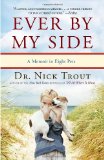Summary | Excerpt | Reviews | Beyond the book | Read-Alikes | Genres & Themes | Author Bio

If servants write the best novels, as Andrew O'Hagan observes in his tragi-comedy The Life and Opinions of Maf the Dog, and of his Friend Marilyn Monroe, then a dog, the most loyal of servants, would write the best novel of all. Mafia Honey, or Maf for short--philosopher, champion of the footnote, Socialist, and Trotskyite--does not fall short of the mark. Maf is a loyal servant, but he is not a sycophant, and the view from his rug-level perspective is intensely real. As he discusses the lives and loves of humans, along with the occasional philosophical diversion, with other dogs he meets, one begins to wonder if all household dogs are actually watching their human friends with such a critical eye.
Indeed, this picaresque novel has the feel of a memoir as Maf describes his experiences with Marilyn Monroe and his impressions of Natalie Wood, Frank Sinatra, and others in first-person narration, but this is not just the story of a life but a tale about a nation on the brink of social change. It is 1960, shortly before the beginning of Kennedy's ill-fated presidency and Marilyn Monroe's suicide. At the edges of the novel, the maelstrom of social change is beginning to swirl--the Civil Rights movement is heating up, the disaster of Vietnam looms--and many are hoping that Kennedy will be the magic solution to a variety of emerging problems. Amid an atmosphere of hope and the promise of change there is also a sense of impending disappointment. The reader knows well the outcome of the events Maf depicts, but Maf does not, and O'Hagan handles this dramatic irony with aplomb. Though we know Marilyn's struggle with drugs and her own crippling self-doubt will end in death, for example, we yearn for the novel to end the way Maf would choose: namely, for the two of them to end up in sun-kissed Mexico drinking cocktails.
Though the title suggests that the novel includes the opinions and life of Marilyn Monroe, she is substantively absent from the narrative. Yes, we travel with her and Maf to parties and movie sets, but Maf's sole narration of these events poses a challenge that O'Hagan does not satisfactorily resolve. Maf tells us that he can read Marilyn's thoughts, but the result is unconvincing. Maf enters her life after her breakup with Arthur Miller, a split that has wrecked her self-confidence. She wants to be considered an intelligent, talented dramatic actress, rather than the sex kitten Hollywood wants her to be. Maf watches as she tries to read great literature, challenges her Freud-obsessed shrink, participates in conversations with the artistic and literary icons of her day, but her character remains hazy, without the flesh of life to make her real. She experiences no change over the course of the narrative. After a while, the repetition of her desire to be taken seriously sounds like a tedious drumbeat.
Perhaps, though, we have these expectations because the novel reads like a memoir; perhaps we expect O'Hagan to present a version of events that will explain the enigma of the real-life Marilyn Monroe. Clearly, this is the danger of re-creating the lives of actual people in fiction: readers will always want concrete details and blame the writer if they are not given. In a counter-intuitive way, perhaps this lack of focus, this lack of precise, full-blooded detail about Maf's owner, actually renders the Marilyn of the novel more real. If O'Hagan had attempted to crawl inside her mind, to provide the essential details we desire so much, she would come off as merely a fictional character, rather than a real woman. Our inability to get a read on Marilyn, in fact, is also Maf's central problem. Try as he might, he can never fully possess or understand Marilyn. The novel ends with Maf sitting on Marilyn's bed, breathing in the fading wafts of her perfume, and it is this image that reflects the central themes of the entire book: Marilyn, with her beauty and talent, is ephemeral, just as the era's hope for a brighter American future is also transitory.
Ultimately, The Life and Opinions of Maf the Dog, and of his Friend Marilyn Monroe is an entertaining read, not least for its satisfying glimpses behind the curtain of Hollywood, but it will not be to everyone's taste. This is not a cute story told from a trusty dog's perspective, but a melancholy social commentary about a nation on the cusp of change. It is funny, sad, and earthy, and Maf the Dog, with his remarkable turns of phrase and impassioned beliefs, is a memorable storyteller.
Interesting Link: Andrew O'Hagan's explores the myth and the mystery of Marilyn Monroe in The Guardian.
![]() This review was originally published in The BookBrowse Review in January 2011, and has been updated for the
September 2011 edition.
Click here to go to this issue.
This review was originally published in The BookBrowse Review in January 2011, and has been updated for the
September 2011 edition.
Click here to go to this issue.

If you liked The Life and Opinions of Maf the Dog, and of His Friend Marilyn Monroe, try these:

by Susan Wilson
Published 2015
Three broken souls, and one dog: Pax. All three of them need healing. All three of them are lost. And in Susan Wilson's A Man of His Own, Pax, with his unconditional love and unwavering loyalty, may be the only one who can guide them home.

by Dr. Nick Trout
Published 2012
Tender, wry, and ruminative, Ever By My Side is a tribute to the power and beauty of ordinary life and a celebration of how pets make it all the sweeter and richer.
A library, to modify the famous metaphor of Socrates, should be the delivery room for the birth of ideas--a place ...
Click Here to find out who said this, as well as discovering other famous literary quotes!
Your guide toexceptional books
BookBrowse seeks out and recommends the best in contemporary fiction and nonfiction—books that not only engage and entertain but also deepen our understanding of ourselves and the world around us.